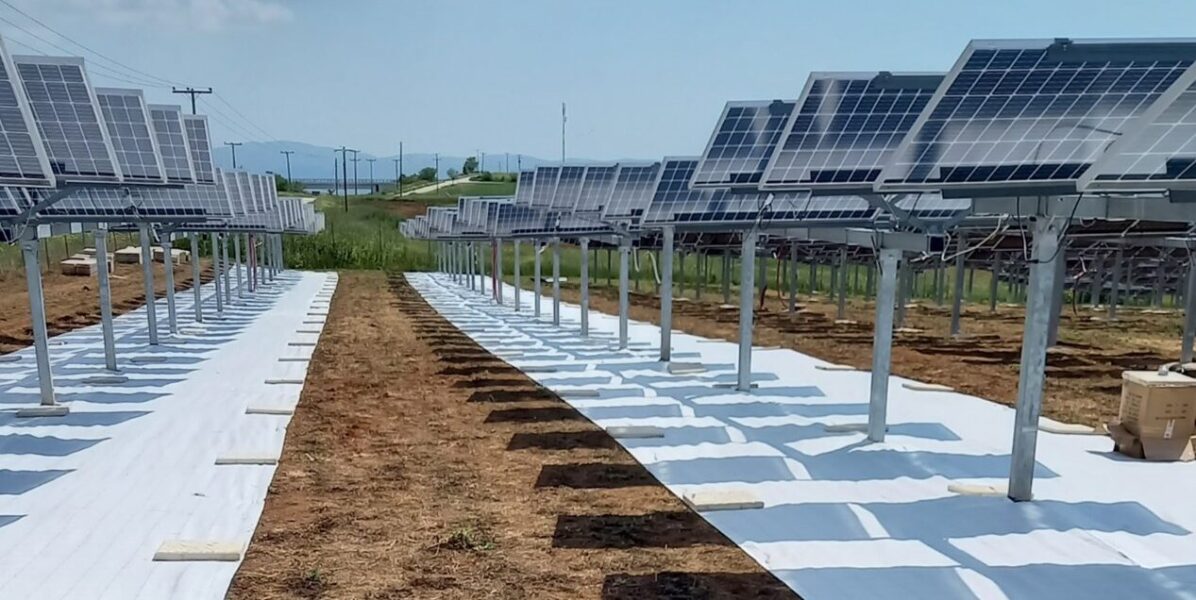From pv magazine Germany
German renewables developer Solar Kapital recently tested a white membrane to improve bifacial solar module yield at three of its solar facilities in Greece.
Solar Kapital reported that approximately 2,500 m2 of its membranes were used at its Lagkadas solar farm. The modules were installed on single-axis trackers with a fixed inclination of 25 degrees, positioned at an average height of 1.5 m above the ground. Measurements taken from June 2022 to May 2023 revealed a weighted average increase in output of 6.4% over the year, though values varied due to radiation intensity.
The company said that the actual yield of the two inverters during the period was 1,661 kWh per kW. Considering weather conditions, a 4% lower yield is assumed, resulting in an average production yield of 1,730 kWh per kW, which the company considers remarkable for the region. Solar Kapital said that with a guaranteed feed-in tariff of €0.073 ($0.079/kWh), the membrane's payback time is less than 2.5 years.
Popular content
Solar Kapital also conducted tests on the membranes at its Kilkis solar plant, which relies on dual-axis tracker technology. The measurements indicated an approximate 2.5% increase in yield for both inverters at the facility. Factoring in a feed-in tariff of €0.335/kWh and minimal labor and geotextile requirements, the company estimated the payback time of the membrane to be less than one year.
However, the payback period estimates do not consider variable costs associated with electricity generation or the potential benefits of reducing the need for grass clippings. The nature of the subsoil is also significant, as installation costs escalate on rocky ground.
Over time, the laid geotextile degrades, with Solar Kapital's engineers assuming an annual loss of around 20% in its degree of reflection due to weather effects and dust. Consequently, the additional yields of the bifacial solar modules diminish.
This content is protected by copyright and may not be reused. If you want to cooperate with us and would like to reuse some of our content, please contact: editors@pv-magazine.com.



The membrane covers the ground, no plants can grow, no animals find a home as in the shadow of other PV-installations. Hope, this idea will go to the dump asap.
j.fog